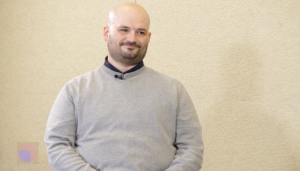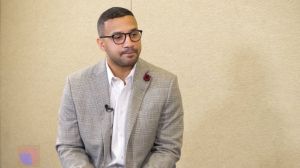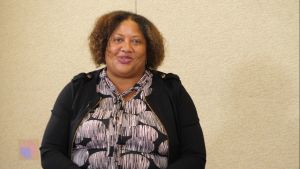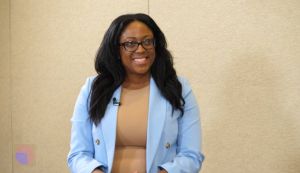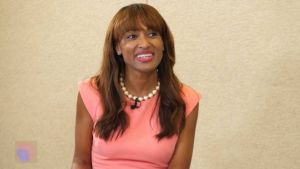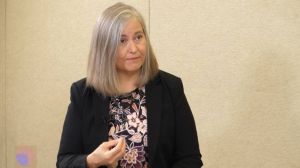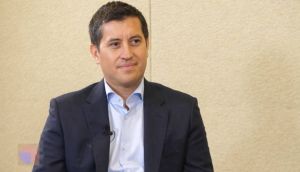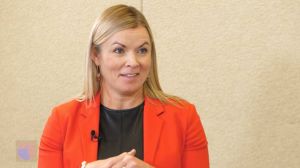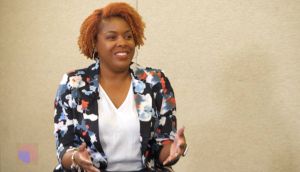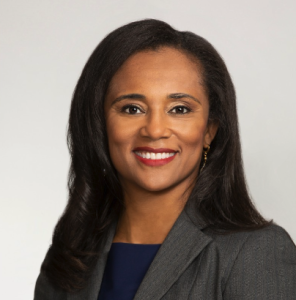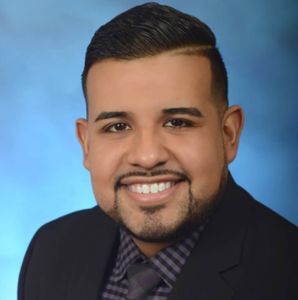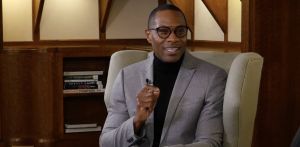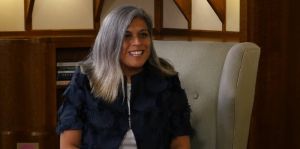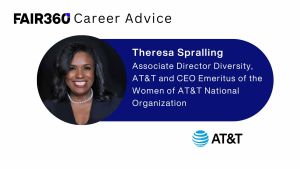Le Nette Rutledge retired from the United States Navy after 10 years of service. During that time, the fields in which she focused included leadership development, facilitation/instructional design, career counseling (specifically recruiting) and anti-submarine warfare.
She is now head of military talent programs at Wells Fargo (No. 11 on The Fair360, formerly DiversityInc Top 50 Companies for Diversity list in 2020).
In this piece, Rutledge talks about her journey transitioning from the U.S. Navy and why it’s important to be your authentic self, whether in the military or corporate America.
There are challenges that come with transitioning from a job in the military to a job in a civilian corporation. But there are numerous transferrable skills that veterans bring to any workplace. These include leadership skills, financial responsibility, self-sufficiency, effective communication, integrity, technology skills teamwork, the ability to perform under pressure and strong problem-solving skills, according to Tommy Furlong, academic and career advisor for veterans and service members at Northeastern University.
“Generally speaking, service members come out of the military with a skill set that is transferable and desirable across all industries,” according to Ann Atienza, career coach at Brandman University’s Career Development Center. “These are some of the most common traits employers look for when determining an individual’s career readiness — and they are also some of the most difficult to train.”
Below, Rutledge discusses being a woman in combat, her transferrable skills into her corporate life from the military and what the transition was actually like.
Related Article: Why Is Training Veterans a Win-Win Situation for Corporations?
Fair360, formerly DiversityInc: Tell us a little bit about what it was like transitioning from the military to Corporate America.
Le Nette Rutledge: Overall, it was fair. I had served in the U.S. Navy for close to 10 years. Prior to that time, I had held (what I refer to as) my first ‘real’ job as a Bank Teller. The thought of re-entering corporate America and now having a son for whom I needed to provide was a bit intimidating. Thankfully I had a really good Transition Assistance Program experience that equipped me with information and resources to begin seeking employment. I was unemployed for approximately one year before finding continuous employment.
DI: Were there any skills you developed while in the military that have been useful in your current role?
Rutledge: While my primary area of expertise (rating) in the Navy was not directly applicable to most occupations in the corporate sector, the opportunities to direct teams and hone my leadership skills proved to be a great asset. Additionally, collateral assignments provided exposure to and experience in various HR disciplines. For example, since I was a naval instructor I learned about facilitation techniques, principles of instructional design and evaluation program effectiveness. As a result, I was able to easily transition into Learning & Development as a civilian occupation. The time I spent as a naval recruiter exposed me to recruiting practices, policies and experiences that were helpful when coordinating/supporting mass recruiting efforts (i.e. job fairs, seasonal hiring, conferences, etc.) in the corporate arena.
DI: Were there any ERGs, programs or even some personal methods used to help with the initial transition of getting acclimated to a new workplace?
Rutledge: Great question! This is where for me there was a most noticeable void. Prior to Wells Fargo, employers with whom I worked offered nothing to assist veterans with the initial transition. If I found an external resource that could help in my transition, my employers were typically supportive. But again, they offered/developed nothing. It would not be until several years later when joining Wells Fargo that I would (for the first time since I exited the military in 1998) have an employer who offered internal resources/programs to assist members of the military community within the organization.
Related Article: Military Experience Gives Veterans Edge in the Workplace
DI: Also, did you always have an idea of what career or industry you wanted to pursue post-military life?
Rutledge: This question makes me smile. Actually, I credit the Navy with helping me realize that creating consistent and compelling learning experiences was my sweet spot, the point at which what I can do, what others need me to do and what I love to do: converge. Since exiting the military, no matter the position or employer, some component of Learning & Development has been a critical component of my job responsibilities. So, a huge ‘shout out’ and “thank you” to the Navy for helping me discover my passion.
DI: Lastly, there are stereotypes that women can’t handle the mental strain of combat or aren’t strong enough. In what ways have you personally opposed these gender stereotypes in the military and continue to do so in your new role?
Rutledge: People will think what they think until they are willing to be open to new and different perspectives. For me, it’s not so much about challenging stereotypes but rather ushering in a paradigm shift. Reality is, yes, for some women the mental strain of being in combat is more than they can bear. And the same is true for some men. Whether I failed or succeeded at points in my military career, it wasn’t because I am a woman. It was because I am human and imperfect. This is not to say that others have not had experiences tied to gender stereotypes. It is to say that adversity due to gender was not my reality.
That being said, it is no secret that (generally) women disproportionately face certain dynamics in corporate settings than our male counterparts do (e.g., glass ceiling, equal pay, etc.). How do I usher in a paradigm shift/challenge stereotypes? I simply show up. As my best, authentic, unrelenting self — I show up. I do my best. I challenge the status quo if there is a viable challenge to be made. And I focus on helping others realize and walk their full potential. I’m a woman. When people see me, they know that. So, just in my showing up in this authentic yet results-oriented way, I offer the opportunity for others to reconsider gender stereotypes and shift their paradigm. As my mom would say at times, “Sometimes you have to show ’em rather than tell ’em.”
I heard one Wells Fargo leader share this, “The military is a microcosm of society.” This is so true. The same stereotypes that abound in society exist in the military … because those who serve in the military bring with them the life experiences, assumptions and beliefs of the societies of which they were previously a part.
Related Article: Principal at EY: Military Experiences Taught Me I am the Master of My Own Limitations
In her work, Rutledge analyzes, designs, develops, implements and maintains programs that provide a platform for the military community to select, stay with and succeed in Wells Fargo as the premier employer of veterans and their families, according to her LinkedIn.
In Rutledge’s previous position as a learning and development senior consultant at Wells Fargo, she facilitated courses and programs providing leadership coaching that reinforces the vision and values of the company for team members across all levels of the organization. Rutledge’s ‘why’ in life is “to courageously and compassionately impart excellence in every life, place and situation” presented to her.
Rutledge joined Wells Fargo in 2009. Prior to that, she served as a leader of learning teams for Fortune 100/500 companies to include QVC, Inc.; Lowe’s Companies, Inc. and Family Dollar Stores, Inc.
Rutledge holds a B.A. in political science from Norfolk State University in Norfolk VA and has begun work on an M.A. in industrial/organizational psychology. She holds Lean Six-Sigma green belt, senior professional in human resources (SPHR) and various coaching certifications.


